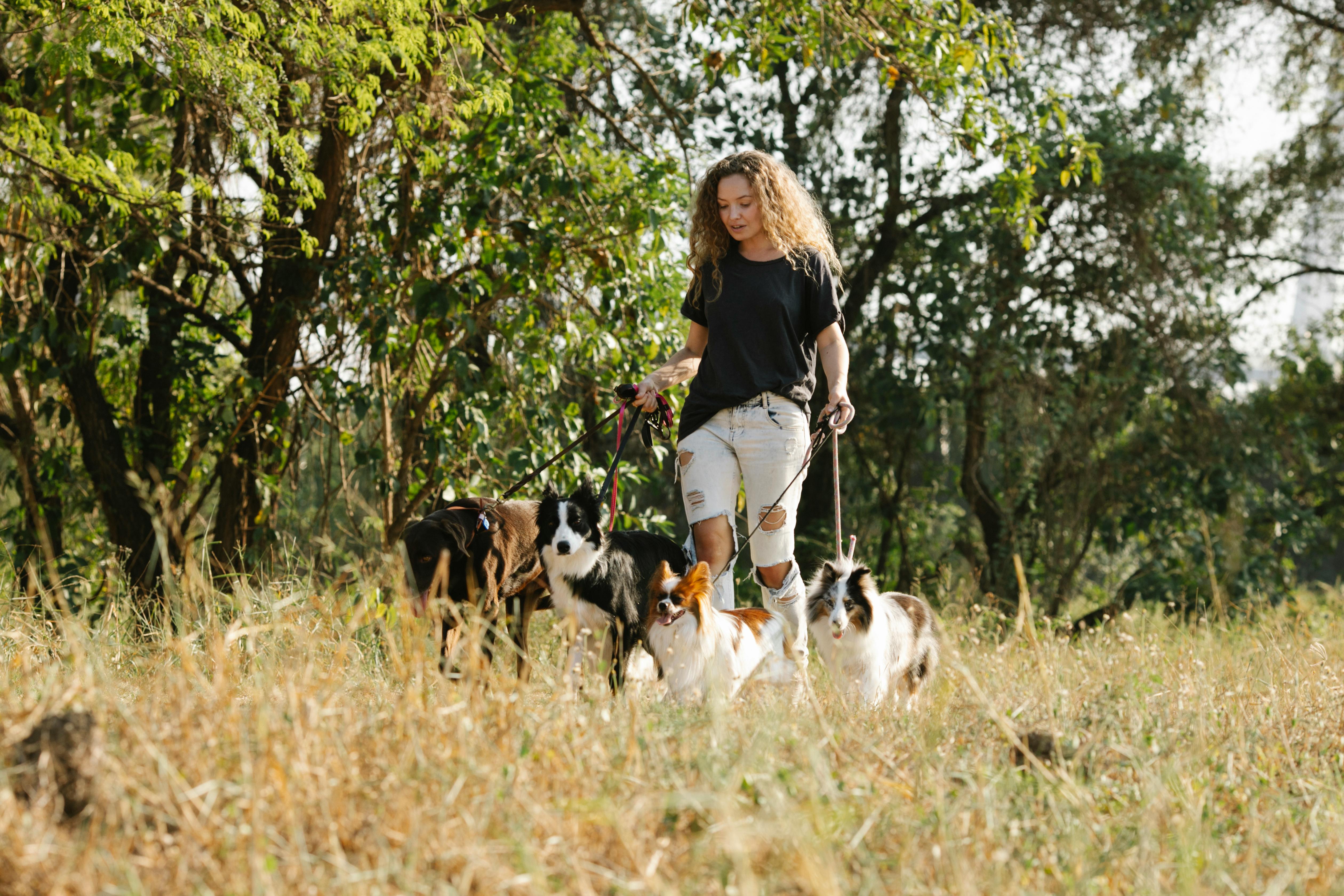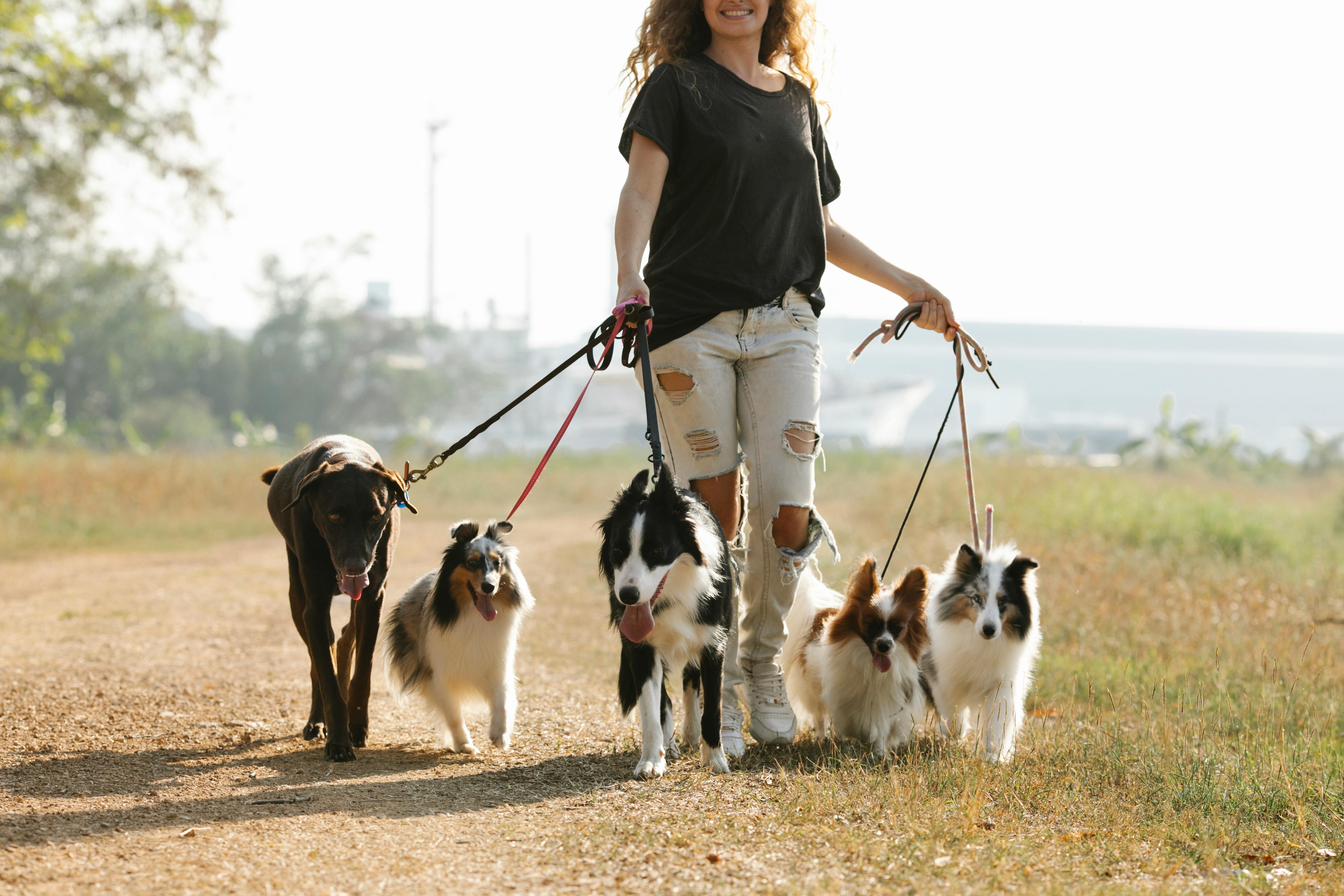The Shetland Sheepdog, commonly known as the Sheltie, is a small-sized intelligent and energetic breed of herding dog that originates from the Shetland Islands of Scotland. They are widely known for their loyalty, intelligence and love of family. With their alert and friendly nature, they make excellent companion dogs, as well as being outstanding in obedience and agility competitions. The Sheltie’s thick double coat comes in a variety of colors, making them a beautiful addition to any home.The Shetland Sheepdog, also known as the Sheltie, is a small herding dog that originated in the Shetland Islands of Scotland. It is a long-haired, intelligent and active breed that is known for its obedience and loyalty. Shelties are popular family pets and are used in many different dog sports such as agility, herding trials, obedience trials and flyball. They range in size from 13 to 16 inches (33 to 41 cm) tall at the shoulder and come in a variety of colors including sable, black/tan, tricolor and blue merle.
Contents
Origin of the Shetland Sheepdog
The Shetland Sheepdog, also known as the Sheltie, is a small herding dog that originates from the Shetland Islands in Scotland. The breed is a descendant of a variety of herding dogs from Scotland, including the Collie and Icelandic Sheepdog. It was developed to herd and guard small flocks of sheep and ponies on the rugged islands. The breed was first recognized by the Kennel Club (UK) in 1909, and by the American Kennel Club in 1911.
The Sheltie is known for its intelligence and loyalty. It is an obedient and devoted family companion, as well as an enthusiastic worker in performance events such as agility, obedience, and herding trials. The breed has a long double coat that comes in a wide variety of colors including sable, black, blue merle, mahogany sable and tricolor.
The breed has been popular for over a century due to its intelligence, loyalty and beauty. It continues to be one of the most popular breeds in both Europe and North America today.
Size and Weight
The Shetland Sheepdog, or Sheltie, is a medium sized breed of dog that weighs between 14 and 16 pounds. The average height for a Sheltie is 13 to 16 inches at the shoulder. This breed has a double coat that can come in many different colors. The outer coat is long and harsh, while the inner coat is soft and fluffy.
Personality
Shetland Sheepdogs are intelligent, loyal, and very sensitive dogs. They make excellent watchdogs because they are easily trained and will alert their owners to any strange sounds or activity. Shelties are known for their strong herding instinct, which makes them excellent companion animals for active households. They are also very affectionate and loving towards their owners, making them wonderful family pets.
Activity Level
Shetland Sheepdogs need plenty of mental stimulation to stay happy and healthy. This breed loves to run, play fetch, go on long walks, or participate in agility courses. They need plenty of exercise every day to stay fit and healthy. Without regular exercise, they may become bored or destructive.
Health Issues
Shetland Sheepdogs are generally healthy dogs with an average lifespan of 12-14 years. However, some health issues can occur such as hip dysplasia or hypothyroidism which can be managed with proper veterinary care and diet. Some Shelties may also be prone to eye problems such as Progressive Retinal Atrophy (PRA) or Collie Eye Anomaly (CEA). It’s important for potential owners to research these issues before getting a Sheltie puppy to ensure that the pup is from a reputable breeder who screens for health problems in the breed.
Physical Appearance of a Shetland Sheepdog
The Shetland Sheepdog is a small to medium-sized breed of herding dog. It has a double coat, with a long, thick, and abundant outer coat that is often trimmed shorter around the face and feet. Its undercoat is soft and thick, while its outer coat is straight and harsh in texture. The dog’s color can range from sable, black and white, tan and white, or blue merle. It has a wedge-shaped head with dark eyes that are almond-shaped. Its ears are triangular in shape and may be either erect or dropped. Its tail is usually docked in length, but it may also be carried low when the dog is in motion. The Shetland Sheepdog stands between 13 to 16 inches tall at the shoulder and weighs between 14 to 25 pounds. It has long legs that are slightly bent at the elbows and feet that are small round with arched toes.
Temperament and Personality of a Shetland Sheepdog
The Shetland Sheepdog is an active, intelligent, and loyal breed. They are very friendly with both people and other animals, making them excellent family companions. They are alert and protective of their families, so they make excellent watchdogs. Shelties have an independent nature, but they are also very willing to please their owners.
Shetland Sheepdogs have a lot of energy, so they enjoy plenty of exercise and mental stimulation. They need regular walks and playtime to stay healthy and happy. Shelties can also be quite mischievous if not given enough attention or activity.
The Shetland Sheepdog is known for being intelligent and trainable. With patience and consistency, most Shelties can learn a variety of commands and tricks. They are eager to please their owners, which makes them easy to train. However, the breed does have a strong independent streak that can sometimes make training more challenging.
Overall, the Shetland Sheepdog is an affectionate and loyal companion that loves spending time with its family. They thrive on physical activity and mental stimulation, so they need plenty of exercise every day to stay happy and healthy. With patience and consistency during training sessions, most Shelties can learn a variety of commands quickly.

Training and Exercise Requirements of a Shetland Sheepdog
Shetland Sheepdogs are active, intelligent, and obedient dogs that require regular training and exercise to stay healthy, both mentally and physically. The breed is known for its devoted, loyal nature and is an excellent choice for families with children. Training should be started early to ensure the best possible outcome. The Shetland Sheepdog is an independent thinker that needs consistent guidance in order to learn commands and follow directions. Positive reinforcement such as treats or verbal praise should be used during training sessions.
Exercise requirements for the Shetland Sheepdog vary depending on age, size, and health. They should have at least 30 minutes of aerobic activity each day including a walk or jog. They also need plenty of playtime with toys or other activities to keep them mentally stimulated. Access to a securely fenced yard where they can run off leash is ideal for this breed. If unable to provide this type of environment, regular trips to the park are important for their physical and mental health.
Grooming Needs of a Shetland Sheepdog
The Shetland Sheepdog is a beautiful, intelligent breed of dog that requires regular grooming to keep its coat looking shiny and healthy. The breed has a double coat that needs to be brushed regularly to prevent mats and tangles. The undercoat should be brushed out every few weeks, while the outer coat should be brushed at least once a week. Regular baths are also necessary to keep the coat clean and free of dirt and debris.
Nail trimming is an important part of the grooming routine for this breed as well. Nails should be trimmed every two weeks or so, depending on how quickly they grow. If the nails are too long, it can cause discomfort for the dog and make it difficult for them to move around easily.
Teeth brushing is also important for this breed, as dental problems can develop if not taken care of properly. Brushing your Shetland Sheepdog’s teeth at least three times a week will help keep their teeth healthy and free from plaque and tartar buildup.
The ears should also be checked regularly for signs of infection or irritation, and cleaned when necessary with a cotton swab dampened with warm water or an ear cleaning solution specifically made for dogs.
Finally, regular brushing and combing of the fur will help reduce shedding by removing dead hair from the coat before it has a chance to fall out on its own. This will help keep your home clean and free from pet hair!
Overall, a Shetland Sheepdog needs regular grooming in order to stay healthy and looking its best! Regular brushing, bathing, nail trimming, teeth brushing, and ear cleaning are all important parts of keeping your Sheltie looking its best!
Health Concerns of a Shetland Sheepdog
The Shetland Sheepdog, also known as the Sheltie, is a hardy breed known for its intelligence and loyalty. However, like any breed of dog, the Shetland Sheepdog can be prone to certain health conditions. Common health concerns in Shelties include hip dysplasia, eye problems, and skin allergies.
Hip dysplasia is a condition where the hip joint does not develop properly. This can cause pain and lameness in the affected leg. Hip dysplasia is most commonly seen in large breeds of dogs but can occur in smaller breeds such as the Sheltie. Treatment for hip dysplasia usually involves surgery or medications to reduce pain and inflammation.
Eye problems are another common health concern in Shelties. The breed is prone to progressive retinal atrophy (PRA), which leads to blindness over time due to degeneration of the retina. Other eye conditions that may affect Shelties include cataracts, glaucoma, and corneal dystrophy.
Skin allergies are also common in this breed. Allergic reactions can occur when the dog comes into contact with certain substances such as pollen or dust mites. Symptoms of an allergic reaction may include redness and itching of the skin, hair loss, and scabs on the skin from scratching or licking excessively. Treatment for skin allergies typically involves medication and avoiding contact with allergens where possible.
Overall, it’s important to keep an eye out for any signs of illness in your Sheltie so that you can take action if necessary to help keep them healthy and happy!

Conclusion
The Shetland Sheepdog is a small, loyal companion that is perfect for active owners. They are intelligent and easy to train, making them an excellent choice for novice owners. They are friendly with other pets and humans alike, provided they have been properly socialized. With proper care and exercise, your Shetland Sheepdog can be a loving friend and family member for years to come.
These cheerful dogs make wonderful companions and can bring joy to any home. If you’re looking for a small but mighty breed of dog, the Shetland Sheepdog might be the perfect fit for you!

0 Comments